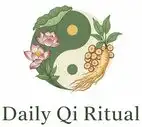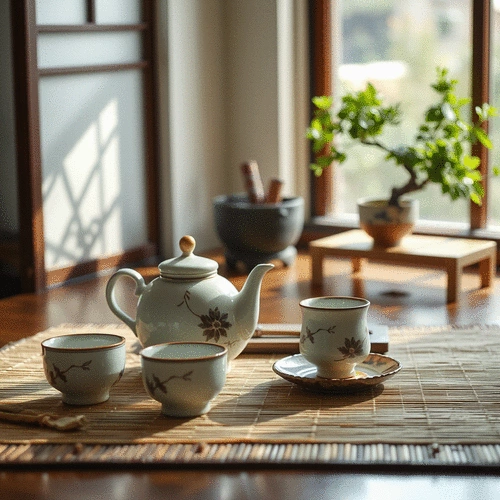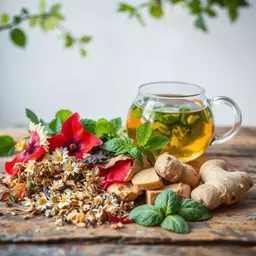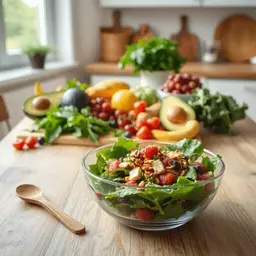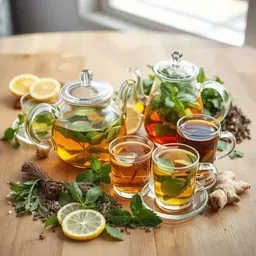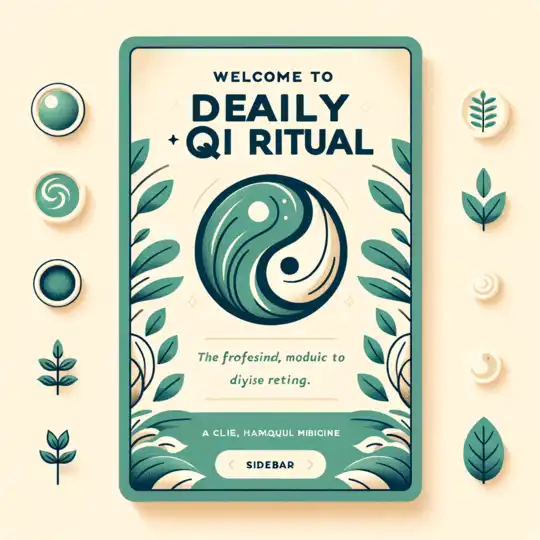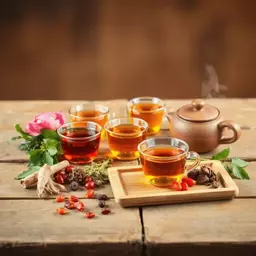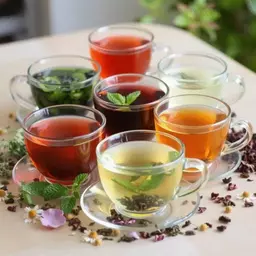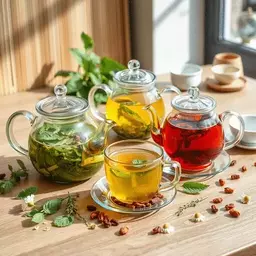Did you know that the simple act of having a cup of tea can transform your daily routine into a mindful ritual? Tea ceremonies are not just about the beverage; they invite us to slow down and savor the present moment, enhancing our well-being through mindfulness.
What You Will Learn
- Tea ceremonies foster mindfulness by inviting reflection, presence, and connection with oneself and the environment.
- Key elements of a mindful tea ritual include preparation, brewing, tasting, and reflection, each enhancing the overall experience.
- Cultural practices, particularly from Zen Buddhism and Taoism, highlight the spiritual significance of tea, emphasizing respect, harmony, and tranquility.
- Personalizing your tea ritual can enhance its meaning, incorporating emotional connections, cultural elements, and sensory appreciation.
- Evidence suggests that tea consumption can boost mood, enhance cognitive function, and promote social connections, enriching our lives through mindfulness.
Key Elements of Mindful Tea Rituals
Understanding the essential components of mindful tea rituals can enhance your practice and connection to the moment. Below is a visual representation of the key elements and their significance:
Preparation
Choosing tea leaves with intention.
Brew Time
Focusing on the brewing process enhances attention.
Tasting
Sipping slowly to appreciate flavors and aromas.
Reflection
Meditating or journaling after drinking to solidify the experience.
Understanding the Essence of Tea Ceremonies in Mindfulness
Tea ceremonies are more than just sipping a warm cup of tea; they're a mindful ritual that invites us to slow down and embrace the present moment. At Daily Qi Ritual, I believe these practices can transform our daily routines into sacred moments of reflection and connection. By understanding how tea can be woven into our lives, we can cultivate a deeper sense of harmony and well-being. For more insights into incorporating mindfulness into your everyday life, consider exploring mindfulness in everyday life.
Mindfulness, at its core, is about being fully aware of our thoughts, feelings, and surroundings. When combined with the art of tea, it becomes a beautiful practice that encourages us to savor each sip, allowing us to connect with ourselves and the world around us. How can we define these mindful rituals through tea practices? Let’s explore together!
Defining Mindful Rituals Through Tea Practices
Incorporating tea ceremonies into our lives is a way to create mindful rituals that enrich our daily experiences. When I prepare a cup of tea, it becomes a multi-sensory experience, engaging all my senses. Here are some key elements that define a mindful tea ritual:
- Preparation: The act of choosing the tea leaves becomes a moment of intention.
- Brew Time: Paying attention to the brewing process enhances our focus.
- Tasting: Sipping slowly allows us to appreciate the flavors and aromas.
- Reflection: Taking a moment after drinking to meditate or journal can solidify the experience.
Each step can serve as a reminder to be present, making tea an excellent medium for cultivating mindfulness. As you develop your own tea rituals, consider how these elements can enhance your connection to the practice.
The Intersection of Tea and Mindfulness
What happens when we combine tea with mindfulness? The result is a profound experience that encourages self-awareness and inner peace. When I sit down with my cup, I’m not just drinking tea; I’m engaging in a practice that grounds me. Mindfulness through tea fosters a unique intersection where both the beverage and the experience nourish our spirits. This connection also extends to holistic health, as discussed in detail when exploring understanding acupuncture: what to expect.
This connection invites us to explore the deeper meaning behind our actions. Why not take a moment to consider your favorite tea? What memories or feelings does it evoke? Allowing ourselves to reflect on these aspects can deepen our appreciation for the ritual.
How Tea Ceremonies Foster Presence and Reflection
Tea ceremonies are a gateway to fostering presence and reflection in our lives. They encourage us to step away from the chaos and embrace stillness. I often find that the simple act of preparing tea calms my mind and opens my heart. Here are several ways tea ceremonies invite presence:
- Creating Space: Setting aside time for tea creates a sanctuary away from distractions.
- Engaging the Senses: The colors, aromas, and flavors draw us into the moment.
- Encouraging Engagement: Mindfully sipping tea leads to a deeper connection with our thoughts.
In a fast-paced world, these moments of pause are essential for maintaining balance. By integrating tea ceremonies into our daily lives, we can cultivate a sense of gratitude and presence, allowing us to reflect on our intentions and aspirations.
The Cultural Significance of Tea within Mindful Rituals
Tea has a rich cultural history that intertwines beautifully with mindfulness practices across various traditions. Understanding this significance can enhance our appreciation for the tea ceremonies we engage in. From Zen Buddhism to Taoism, tea rituals have been practiced for centuries as a form of spiritual expression and connection.
As we explore the cultural significance of tea, we can see how it embodies the essence of mindfulness and community. At Daily Qi Ritual, I find inspiration in the rich heritage of tea that informs our understanding of its role in fostering harmony and balance in our lives.
Exploring the Roots in Zen Buddhism and Taoism
Zen Buddhism and Taoism emphasize harmony with nature and the universe, and tea plays a pivotal role in these philosophies. The practice of tea drinking transcends mere nourishment, becoming a form of meditation that encourages reflection. Here's how these traditions have shaped tea's cultural significance:
- Mindful Preparation: The meticulous process of preparing tea mirrors the mental clarity sought in meditation.
- Community Connection: Sharing tea strengthens bonds among participants, fostering a sense of belonging.
- Natural Harmony: Tea ceremonies embody the principles of yin and yang, reflecting balance in life.
These roots remind us that tea is not just a beverage; it’s a gateway to mindfulness that connects us to ancient wisdom. Delving into this further can reveal how herbal teas in traditional Chinese medicine also emphasize balance and holistic well-being.
Philosophical Pillars: Respect, Harmony, and Tranquility
The philosophical pillars of respect, harmony, and tranquility form the foundation of tea practices. These concepts are reflected in every aspect of a tea ceremony, inviting participants to engage with these principles deeply. Here’s how they manifest:
- Respect: Acknowledging the tea's origins and the effort involved in its cultivation.
- Harmony: Creating a tranquil environment where all participants feel connected.
- Tranquility: Allowing the experience of tea to promote calmness within.
Embracing these pillars can enhance our personal tea rituals, helping us cultivate a mindful practice that resonates with our inner values. For additional ways to promote calm, explore techniques to calm your mind naturally.
Cultural Heritage: The Legacy of Japanese Aesthetics
The Japanese tea ceremony, or Chanoyu, embodies a unique cultural heritage that celebrates simplicity and aesthetics. This practice is all about appreciating the beauty in each moment, no matter how small. As I engage with this tradition, I find inspiration in the following aspects:
- Aesthetic Appreciation: Emphasizing the beauty of utensils, environment, and presentation.
- Seasonal Awareness: Aligning tea choices with the changing seasons to foster connection with nature.
- Simplicity: Finding joy in minimalism and the essence of the experience itself.
By reflecting on these elements, we can enhance our tea rituals, infusing them with a sense of cultural richness and mindfulness.
Quick Summary
Here's a brief recap of the key points discussed so far:
- Tea ceremonies serve as mindful rituals, encouraging us to slow down and embrace the present moment.
- Key elements of a mindful tea ritual include preparation, brew time, tasting, and reflection.
- The cultural significance of tea in mindfulness spans various traditions, emphasizing respect, harmony, and tranquility.
Frequently Asked Questions About Mindful Tea Rituals
- What is a mindful tea ritual?
- A mindful tea ritual is a practice that uses the preparation and consumption of tea as a way to engage with the present moment, fostering reflection, presence, and connection with oneself and the environment.
- What are the key elements of a mindful tea ritual?
- The key elements include intentional preparation (choosing leaves), focused brew time (paying attention to the process), slow tasting (appreciating flavors and aromas), and reflective journaling or meditation after drinking.
- How do tea ceremonies connect to Zen Buddhism and Taoism?
- In Zen Buddhism and Taoism, tea rituals are a form of meditation emphasizing harmony with nature, mindful preparation, community connection, and balance, embodying principles like respect, harmony, and tranquility.
- Can personalizing my tea ritual enhance its meaning?
- Absolutely. Personalizing your tea ritual by choosing favorite teas, creating a dedicated space, incorporating cultural elements, and setting a regular time can deepen its meaning and enhance your connection to the practice.
- What are the evidence-based benefits of tea ceremonies?
- Evidence suggests that regular tea consumption and engaging in tea rituals can enhance cognitive function, boost mood by reducing stress, and promote social connections, enriching overall well-being.
Encouraging Personal Exploration of Tea as a Mindful Practice
As we delve deeper into the world of tea, I invite you to reflect on the role that tea plays in your life. Have you ever considered how a simple cup can transform moments into mindful experiences? At Daily Qi Ritual, we believe that embracing tea rituals can significantly enhance your daily routine, fostering a sense of presence and balance.
To begin your personal exploration, think about the emotional connections you associate with tea. You might find that certain blends remind you of specific moments in your life, evoking feelings of peace or joy. By taking a moment to acknowledge these connections, you're already on the path to incorporating mindfulness into your tea practices!
Inviting Reflection on Tea’s Role in Your Life
Personalizing your tea ritual is an excellent way to make it more meaningful. Here are some tips to help you adapt tea ceremonies to resonate with your unique lifestyle:
- Choose Your Favorite Teas: Select blends that speak to you personally. Whether it’s a soothing chamomile or a lively green tea, pick what you love!
- Create a Dedicated Space: Designate a corner in your home for your tea rituals. It can be as simple as a small table with your favorite teapot and cups.
- Incorporate Cultural Elements: Add personal touches that align with your cultural background. This makes the experience even richer!
- Set a Regular Time: Establish a routine. Having a specific time for your tea ritual can enhance your mindfulness journey.
Savoring the sensory experience of tea is also essential. Take a moment to appreciate the color, aroma, and taste of each sip. When you steep your tea, observe how the leaves unfurl and release their essence into the water. What aromas fill the air? This simple act of focus can greatly enhance your connection to the moment.
Personalization Tips for Adapting Tea Rituals
One way to further enhance your tea practice is by experimenting with different brewing techniques. From traditional methods to modern approaches, here are some ideas:
- Use a Gaiwan: This traditional Chinese vessel allows for precision in brewing and is perfect for appreciating delicate teas.
- Try Cold Brew: For a refreshing twist, experiment with cold brewing your favorite teas!
- Explore Different Water Temperatures: Different teas require different temperatures for optimal flavor. Play around with this to discover what you enjoy most.
Each of these techniques can help you discover new flavors and enhance your overall experience. As you integrate these practices, you may find that your relationship with tea becomes even more profound.
Exploring Evidence-Based Benefits of Tea Ceremonies
While the personal exploration of tea is wonderful, it’s also valuable to look at the research backing the benefits of tea ceremonies. Studies have shown that incorporating tea into your daily routine can:
- Enhance Cognitive Function: Regular tea consumption has been linked to improved mental clarity and focus.
- Boost Mood: The act of brewing and savoring tea can significantly reduce stress and enhance emotional well-being.
- Promote Social Connections: Engaging in tea rituals can strengthen bonds with others, enhancing your overall sense of community.
By integrating these evidence-based benefits into your tea practice, you can further solidify your commitment to mindfulness and well-being.
Summary of the Role of Tea Ceremonies in Mindful Rituals
Tea ceremonies offer a beautiful way to embrace mindfulness in our daily lives. The simple act of preparing and enjoying tea can transform mundane moments into opportunities for reflection and connection. I encourage you to explore this journey with an open heart and mind!
Embracing Mindfulness Through Tea Practices
Ultimately, incorporating tea into your daily life is about finding harmony and balance. As you brew your cup, consider what intentions you wish to set for your day. Let these rituals become a source of comfort and inspiration.
Final Thoughts on Incorporating Tea into Daily Life
Remember, it’s not just about the tea; it’s about the moments you create around it. Embrace the ritual with joy! At Daily Qi Ritual, we are here to support you on this journey of self-discovery through tea.
Call to Action: Start Your Mindful Tea Journey
Are you ready to take the plunge into the world of mindful tea rituals? I invite you to experience the magic for yourself! Start by selecting a tea that resonates with you and create your own personal ritual. Share your experiences with us at Daily Qi Ritual; together, let’s cultivate a community grounded in harmony and well-being.
Recap of Key Points
Here is a quick recap of the important points discussed in the article:
- Mindful Preparation: Choosing tea leaves intentionally enhances your tea ritual.
- Engage All Senses: From brewing to tasting, each step should be a mindful experience.
- Create a Dedicated Space: Establish a serene area in your home for your tea rituals.
- Incorporate Cultural Elements: Add personal touches that reflect your cultural heritage to enrich the experience.
- Regular Routine: Setting aside specific times for tea can deepen your mindfulness practice.
- Explore Brewing Techniques: Experiment with different methods and temperatures to discover new flavors.
- Reflect on Emotional Connections: Consider the memories and feelings that different teas evoke as part of your practice.
- Evidence-Based Benefits: Regular tea consumption can enhance cognitive function, boost mood, and promote social connections.
